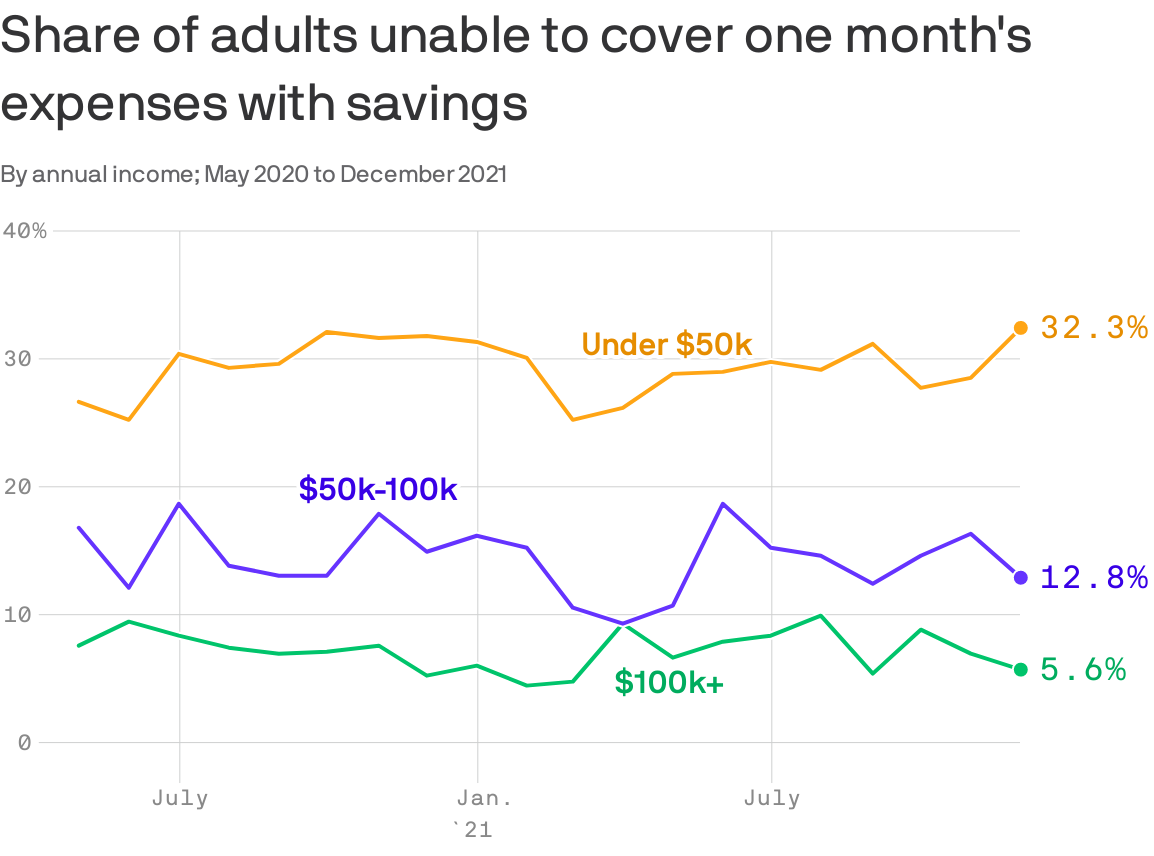Savings dwindle among lower earners
Add Axios as your preferred source to
see more of our stories on Google.

The roll-off of pandemic-era government support for families is showing up in the form of increased financial vulnerability among those at the lower end of the income spectrum.
Driving the news: About 32.3% of adults earning less than $50,000 per year said in December that their savings wouldn't cover one month of expenses — that's up from 28.4% who said so last month.
Why it matters: That stat is one aspect of an uptick in inequality between income groups in the U.S., as measured by the Morning Consult/Axios Inequality Index.
How it works: The index measures whether economic inequality is rising or declining — as opposed to providing a snapshot of the distribution of income or wealth.
By the numbers: The share of adults who experienced a loss of income rose among those earning less than $50,000 per year, while it fell among those earning more than $100,000.
- And consumer sentiment rose more for higher earners than it did for lower earners.
The bottom line: Heading into what looks to be a wave of Omicron variant infections, “people are not going to have that social safety net this time around,” says John Leer, Morning Consult chief economist.
